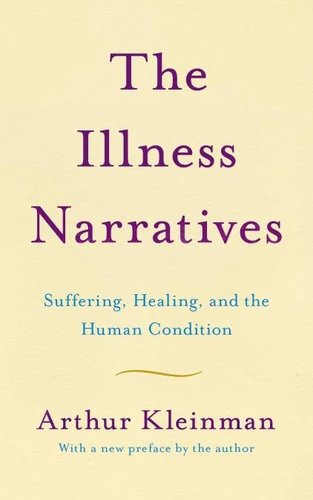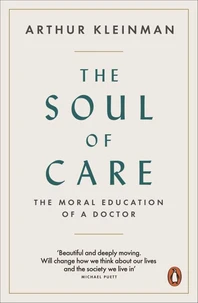The Illness Narratives. Suffering, Healing, And The Human Condition
Par :Formats :
Disponible dans votre compte client Decitre ou Furet du Nord dès validation de votre commande. Le format ePub protégé est :
- Compatible avec une lecture sur My Vivlio (smartphone, tablette, ordinateur)
- Compatible avec une lecture sur liseuses Vivlio
- Pour les liseuses autres que Vivlio, vous devez utiliser le logiciel Adobe Digital Edition. Non compatible avec la lecture sur les liseuses Kindle, Remarkable et Sony
- Non compatible avec un achat hors France métropolitaine
 , qui est-ce ?
, qui est-ce ?Notre partenaire de plateforme de lecture numérique où vous retrouverez l'ensemble de vos ebooks gratuitement
Pour en savoir plus sur nos ebooks, consultez notre aide en ligne ici
- Nombre de pages336
- FormatePub
- ISBN978-1-5416-7460-8
- EAN9781541674608
- Date de parution12/10/2020
- Protection num.Adobe DRM
- Infos supplémentairesepub
- ÉditeurBasic Books
Résumé
From one of America's most celebrated psychiatrists, the book that has taught generations of healers why healing the sick is about more than just diagnosing their illness. Modern medicine treats sick patients like broken machines -- figure out what is physically wrong, fix it, and send the patient on their way. But humans are not machines. When we are ill, we experience our illness: we become scared, distressed, tired, weary.
Our illnesses are not just biological conditions, but human ones. It was Arthur Kleinman, a Harvard psychiatrist and anthropologist, who saw this truth when most of his fellow doctors did not. Based on decades of clinical experience studying and treating chronic illness, The Illness Narratives makes a case for interpreting the illness experience of patients as a core feature of doctoring. Before Being Mortal, there was The Illness Narratives.
It remains today a prescient and passionate case for bridging the gap between patient and practitioner.
Our illnesses are not just biological conditions, but human ones. It was Arthur Kleinman, a Harvard psychiatrist and anthropologist, who saw this truth when most of his fellow doctors did not. Based on decades of clinical experience studying and treating chronic illness, The Illness Narratives makes a case for interpreting the illness experience of patients as a core feature of doctoring. Before Being Mortal, there was The Illness Narratives.
It remains today a prescient and passionate case for bridging the gap between patient and practitioner.
From one of America's most celebrated psychiatrists, the book that has taught generations of healers why healing the sick is about more than just diagnosing their illness. Modern medicine treats sick patients like broken machines -- figure out what is physically wrong, fix it, and send the patient on their way. But humans are not machines. When we are ill, we experience our illness: we become scared, distressed, tired, weary.
Our illnesses are not just biological conditions, but human ones. It was Arthur Kleinman, a Harvard psychiatrist and anthropologist, who saw this truth when most of his fellow doctors did not. Based on decades of clinical experience studying and treating chronic illness, The Illness Narratives makes a case for interpreting the illness experience of patients as a core feature of doctoring. Before Being Mortal, there was The Illness Narratives.
It remains today a prescient and passionate case for bridging the gap between patient and practitioner.
Our illnesses are not just biological conditions, but human ones. It was Arthur Kleinman, a Harvard psychiatrist and anthropologist, who saw this truth when most of his fellow doctors did not. Based on decades of clinical experience studying and treating chronic illness, The Illness Narratives makes a case for interpreting the illness experience of patients as a core feature of doctoring. Before Being Mortal, there was The Illness Narratives.
It remains today a prescient and passionate case for bridging the gap between patient and practitioner.





